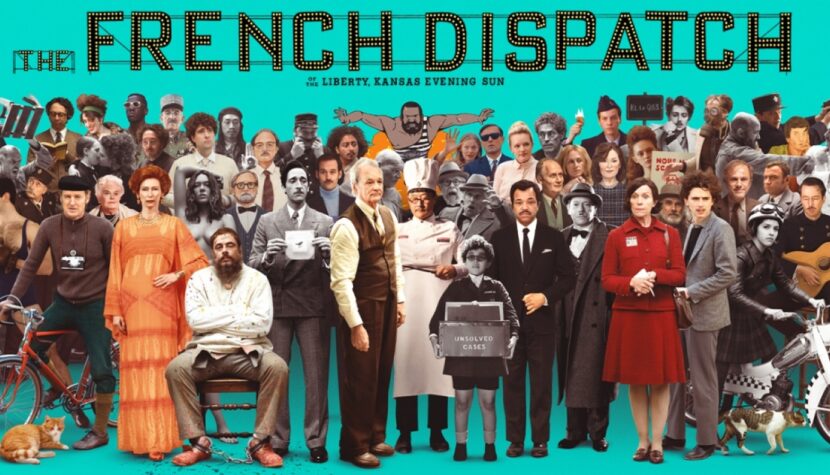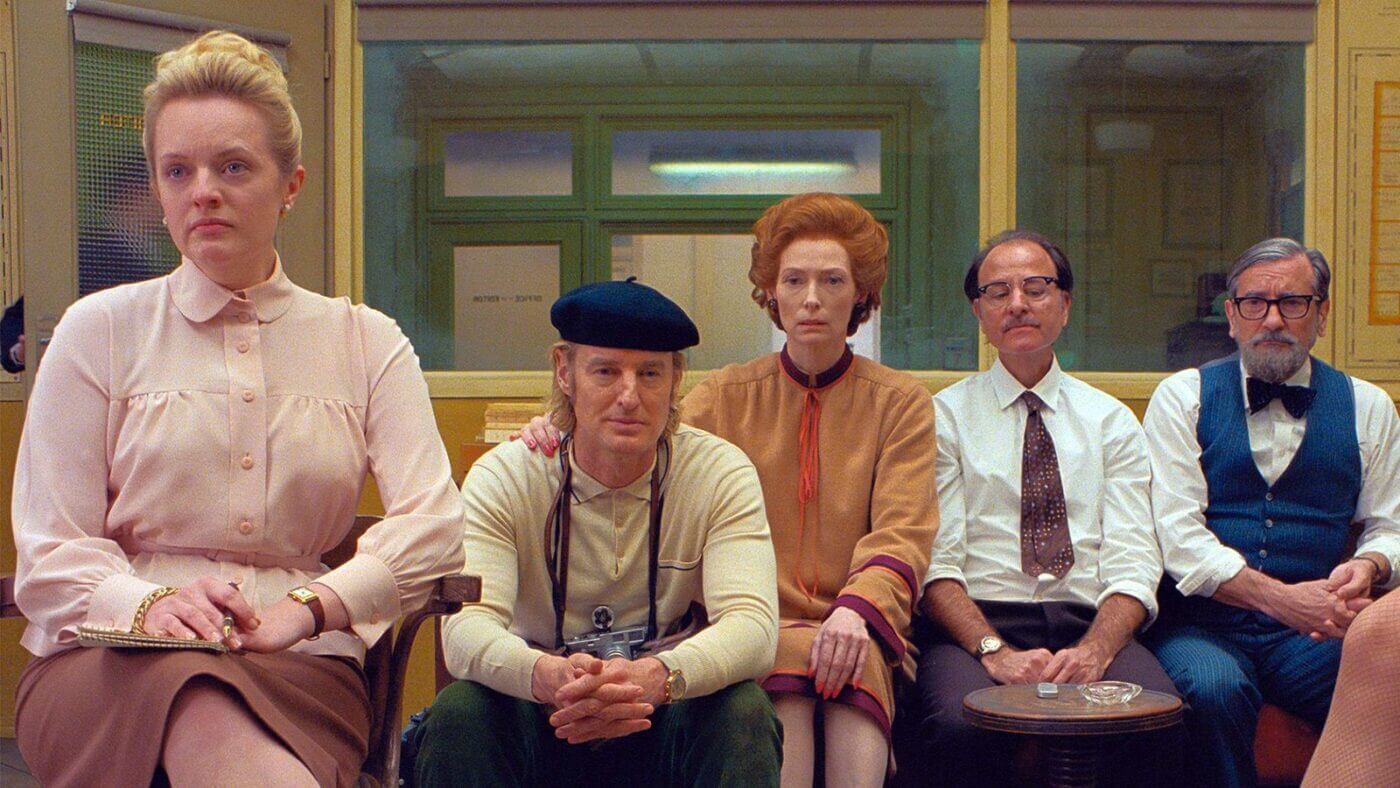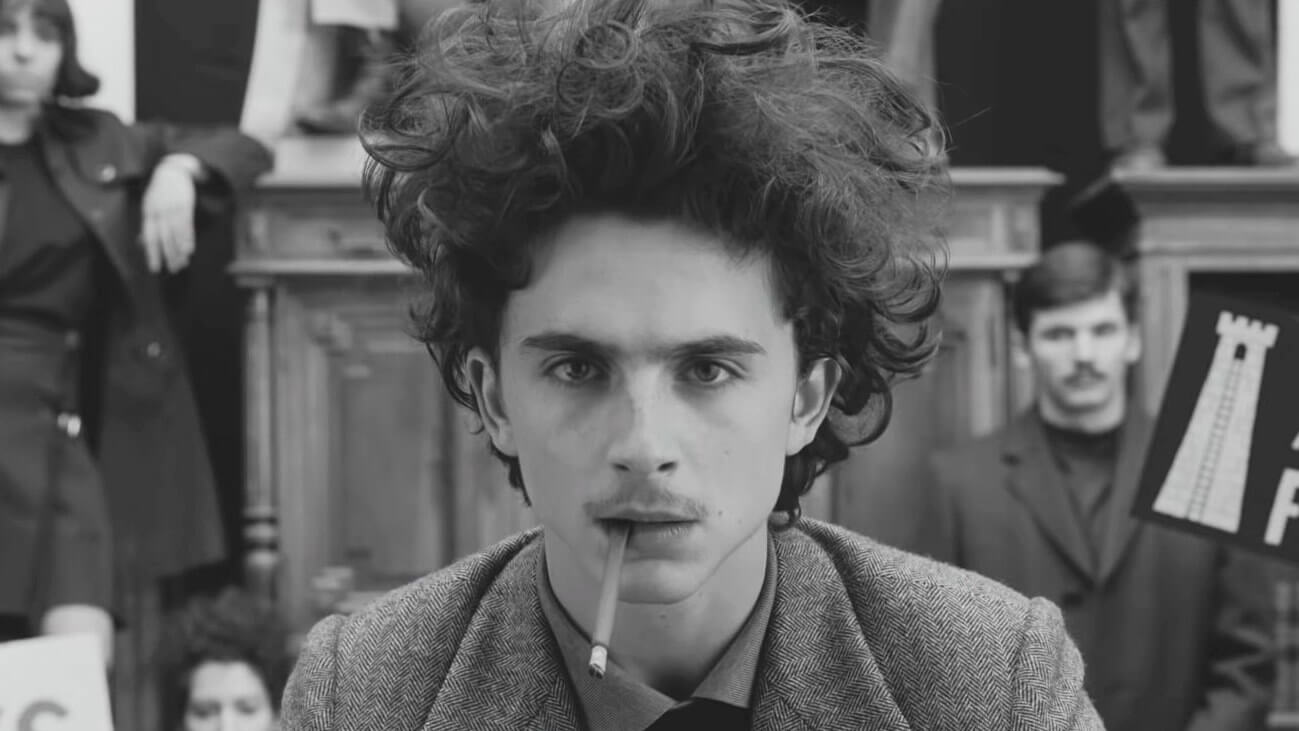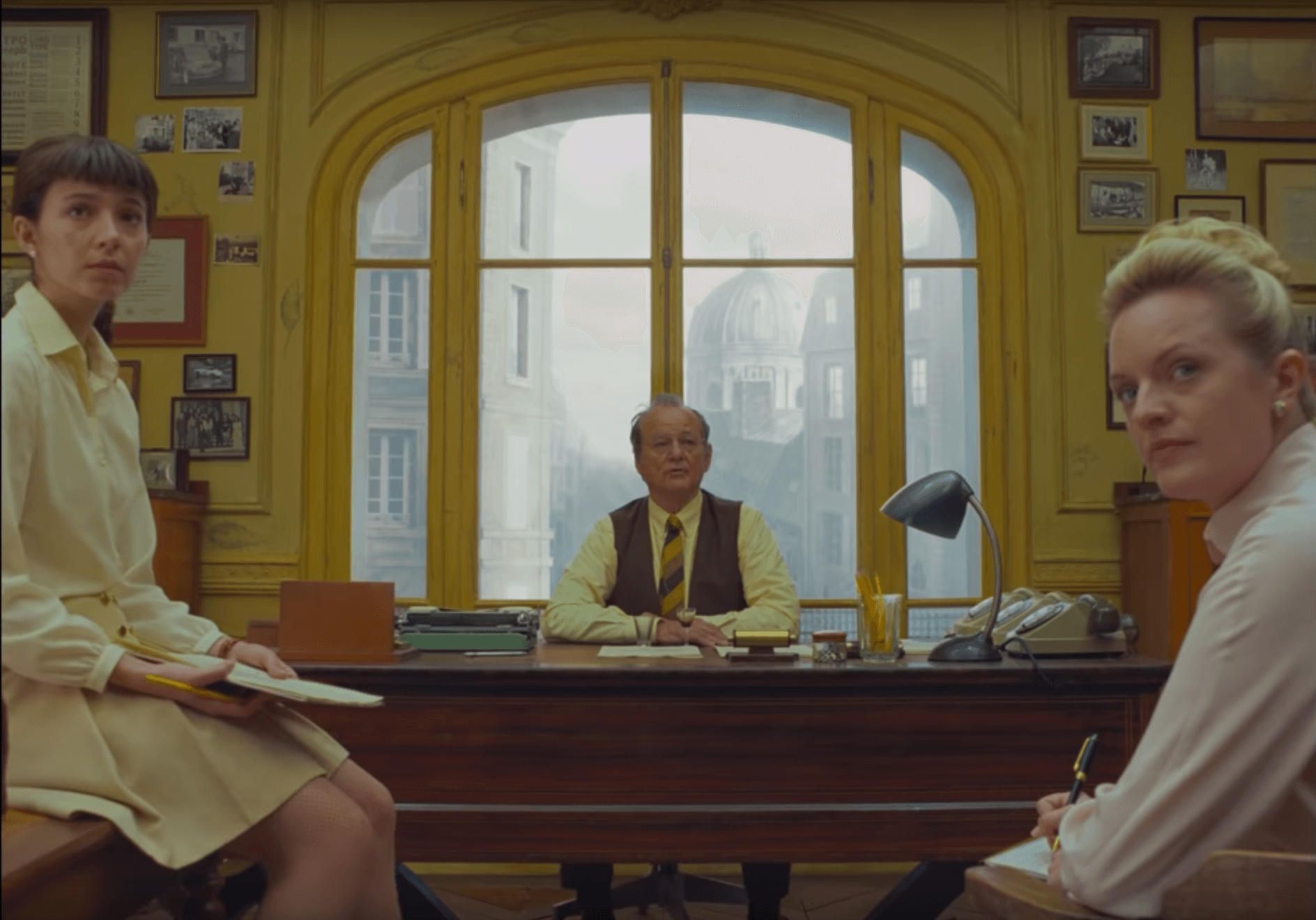THE FRENCH DISPATCH. Wes Anderson in a top cinematic form

Wes Anderson is back. It’s been some time since the premiere of Isle of Dogs, so it’s high time to immerse ourselves in another exceptional world crafted by the amiable Texan. The director openly admitted, “Some filmmakers go outside, experience the world, and convey it on screen. I can’t do that. If I want to make a film, it’s to create a separate universe.” And indeed, Anderson’s symmetrical, candy-colored worlds have little in common with the everyday life we are sentenced to before and after, but not during the screening of Fantastic Mr. Fox, The Grand Budapest Hotel, or Moonrise Kingdom. They allow us to immerse ourselves in an original, alternative space-time governed by its own rules. The same holds true for his latest film, The French Dispatch.
The French Dispatch is the most intricately constructed work in Anderson’s filmography so far. It adapts the final issue of the titular magazine created for the story’s sake – each article determines the subsequent chapters of this complex, multi-threaded narrative. The essential common thread remains the setting: each of the stories is somehow connected to the fictional French town of Ennui-sur-Blasé (a name that literally translates to “Boredom above Apathy”). So, we have a brief account of small-town life by Herbsaint Sazerac (Owen Wilson); a tale of a painterly genius developing his talent in prison, written by J.K.L. Berensen (Tilda Swinton); a story of a student revolt, eerily reminiscent of the events of May 1968, meticulously and extensively described by Lucinda Krementz (Frances McDormand); and finally, a culinary-criminal intrigue reconstructed by the stylishly youthful James Baldwin-inspired Roebuck Wright (Jeffrey Wright).

All of these stories come together to create a dynamic, breathless anthology film – the first of its kind in Anderson’s body of work. Although words play a very important role here (each story is accompanied by off-screen narration, led by the author of the respective article), the visuals still take center stage. Meticulously composed frames, more reminiscent of animation than live-action film, are not only a pleasure for the eyes but also a challenge for the viewer this time around. The creator of The Darjeeling Limited keeps surpassing himself from film to film: there can always be more symmetry, more pastel, more vintage. However, it seems that The French Dispatch sets a certain limit, and crossing it could leave Anderson’s fans dizzy – indeed, the film’s frenetic pace keeps the viewer glued to the screen, but it doesn’t allow for a proper appreciation of Anderson’s and his collaborators’ directorial craftsmanship. The abundance of details can be overwhelming and often confounds the viewer – or, more specifically, their bewildered gaze darting around the screen; it takes time to get accustomed to Anderson’s distinctive aesthetic, taken to such extremes. It’s a shame that the camera doesn’t linger longer on meticulously composed locations, allowing the eye to dwell on specific details within the frame (and believe me, there’s plenty to see) and to absorb the specific atmosphere of Anderson’s cinema slowly but in its entirety.

These few bitter words certainly don’t mean that The French Dispatch is an unsuccessful film – quite the opposite. The director ensures that we are impressed by more than just the formal aspects of his film. Each of the stories is humorous, engaging, and leaves a very distinct mark in the viewer’s memory. Each one is told in a slightly different style that reflects the unique personality of the fictional author of the article. Lastly, each is filled with colorful, eccentric characters who instantly bring the film’s world to life. The cast of The French Dispatch can even extract character and bring to the surface that elusive charm from even the most insignificant roles, ensuring that a character doesn’t evaporate from our minds a few minutes after leaving the cinema. Throughout the film, familiar faces haunt us, and spotting the next top-tier actors becomes a kind of cinephile game that engages the audience completely. Which other contemporary director could afford to organize something similar? Who else could gather Bill Murray, Adrien Brody, Benicio del Toro, Willem Dafoe, Saoirse Ronan, Timothée Chalamet, Edward Norton, Christoph Waltz, Mathieu Amalric, Elisabeth Moss, and Léa Seydoux (the list could go on) on one set? And all of this within an original, fully authored project that is not part of a major film franchise.

The French Dispatch can also be seen as Wes Anderson’s personal statement on journalism. In his film, Anderson advocates for authors who are not afraid to experience the world around them and express themselves in the first person singular (somewhat akin to Hunter S. Thompson, who promoted an ultra-subjective gonzo style of journalism in the United States). All the reporters working for the titular magazine take a direct and active part in the events they describe – Anderson’s journalist is an active person, not sitting behind a desk and monotonously typing on a typewriter, but constantly on the move, ready to follow their subject to the ends of the earth. In fact, in the closing credits of the film, the director mentions several authors (including James Baldwin, Lillian Ross, and A.J. Liebling) who viewed the profession of a journalist in a similar way. Most of them collaborated with the editor-in-chief Harold Ross in shaping the legendary “New Yorker” magazine, which was the primary source of inspiration for Anderson’s fictional newspaper in the film.

Shortly after the premiere of The French Dispatch (which was delayed due to the pandemic), Wes Anderson had already found himself on the set of his next project – Asteroid City. The cast is once again stellar, featuring not only Anderson’s regulars like Bill Murray, Tilda Swinton, Jason Schwartzman, and Adrien Brody but also some entirely new faces not previously associated with the director’s work, such as Tom Hanks, Margot Robbie, and Matt Dillon. Another journey into Wes Anderson’s peculiar world promises to be even better than fantastic, and the director, as is his custom, will likely surprise everyone with his unique stylistic choices, surpassing all his previous achievements. There is certainly much to look forward to.

